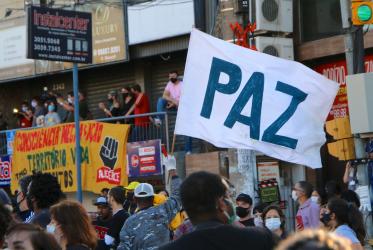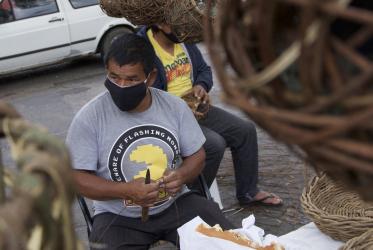Displaying 81 - 100 of 524
EWN members stand in solidarity with water and land defenders
21 September 2021
How racism and colonialism are exacerbating impacts of climate change
29 September 2021
“Remembering Past Massacres” webinar will focus on Latin America
16 September 2021








